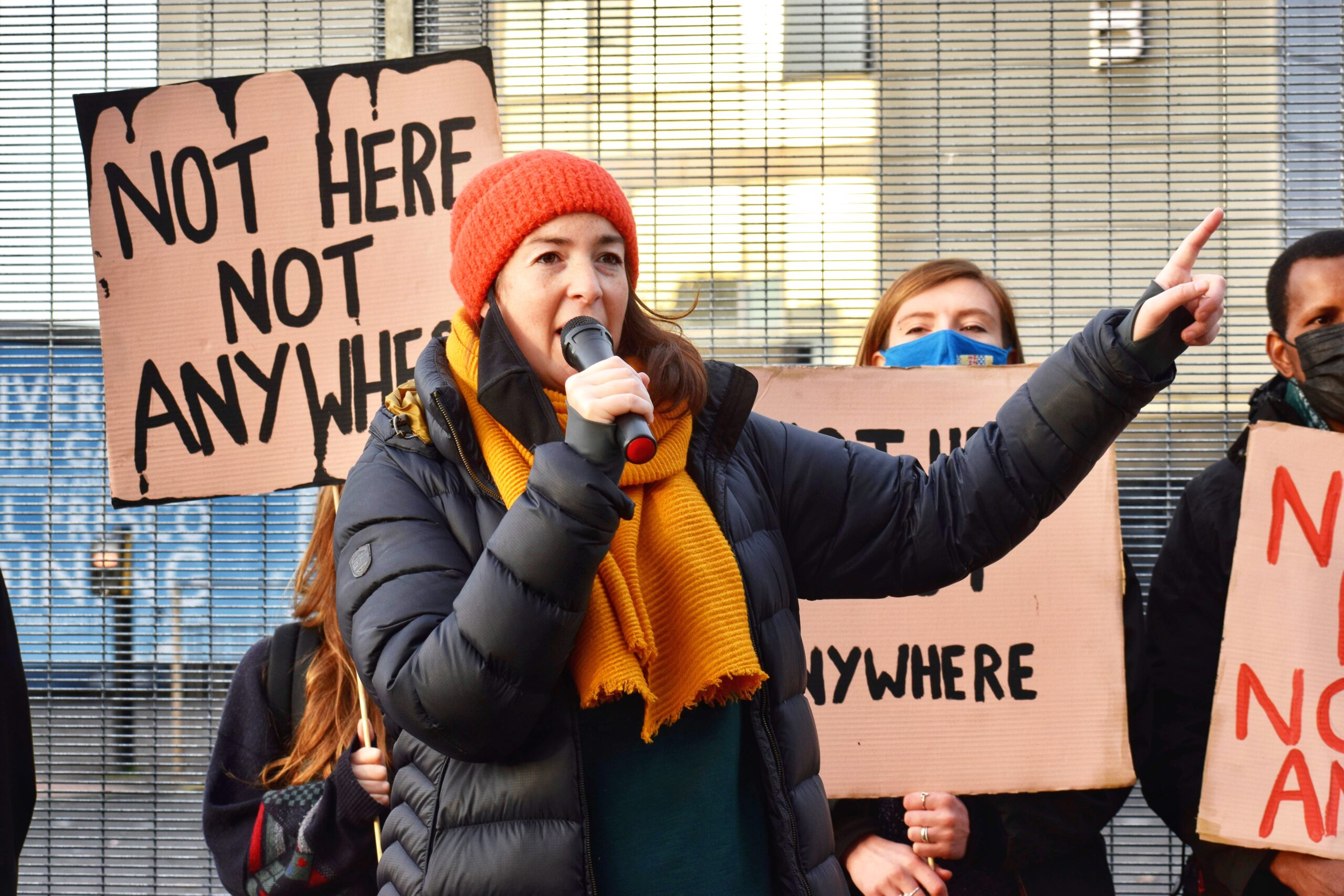
RBS invested billions in Canada’s ‘blood oil’
RBS has been involved in providing loans worth nearly £5bn in the last three years to companies carrying out highly controversial ‘tar sands’ mining in Canada.
A coalition of NGOs including PLATFORM, the World Development Movement, People & Planet and Friends of the Earth Scotland have today released a report, ‘Cashing in on Tar Sands – RBS, UK Banks and Canada’s ‘Blood Oil’, which shows that outside of North America, RBS is involved in the highest quantity of loans to tar sands-related companies, equivalent to 8% of the global total.
Exploitation of tar sands has been the subject of international criticism for its negative impact on climate change, Canadian ecosystems and the Indigenous communities that live in the region.
The report is being released on the same day that three of the groups are in court challenging the Treasury over RBS’ use of public money to provide finance for companies that exacerbate climate change and disregard human rights, including tar sands, coal, oil and gas and other forms of mining, for example, Vedanta’s bauxite mines in India.
Mel Evans from PLATFORM, one of the authors of the report, said: “RBS has been involved in providing more money in loans to destructive tar sands companies than any other UK bank. When RBS executives get their bonuses, they are being rewarded for enabling oil companies to devastate traditional ways of life for indigenous communities in Canada, while making the problems of climate change much, much worse.”
Juliet Swann, Friends of the Earth Scotland’s Head of Campagns, said: “The UK currently consumes an unsustainable and unfair share of the world’s resources. That we also support – through RBS’ investment – a disproportionate share of this destructive resource exploitation makes us doubly culpable.
“We think the UK taxpayers have the right to demand that banks bailed out with our cash should behave ethically and responsibly with an eye to long term implications for the environment and for human rights. RBS’ association with tar sands companies is unacceptable.”
ENDS
For media enquiries please contact:
Per Fischer, Press Office, Friends of the Earth Scotland
t: 0131 243 2719
Notes to Editors
Tar sands are a type of oil that is mixed up with a particulate matter that needs to separated. The process of obtaining the oil is around three times more carbon intensive than obtaining conventional oil. In addition the process creates enormous lakes of toxic byproducts that are leaking into water sources, and are being blamed by local communities for the abnormal rates of rare cancers they are experiencing.
The full list of groups publishing the report is PLATFORM, the World Development Movement, People & Planet, the Indigenous Environmental Network, Friends of the Earth – Scotland, Friends of the Earth – England, Wales and Northern Ireland, Friends of the Earth – Europe, the New Internationalist, Indigenous Peoples Links, BankTrack and the Rainforest Action Network.
Friends of the Earth Scotland exists to help people in Scotland look after the planet for everyone’s future. We think globally and act locally in Scotland, delivering solutions to climate change by enabling and empowering people to take both individual and collective action. We offer help to people with the big things in life – helping to sustain a healthy society and environment. We believe that all of our children’s futures will be better because of what we do. www.foe-scotland.org.uk
